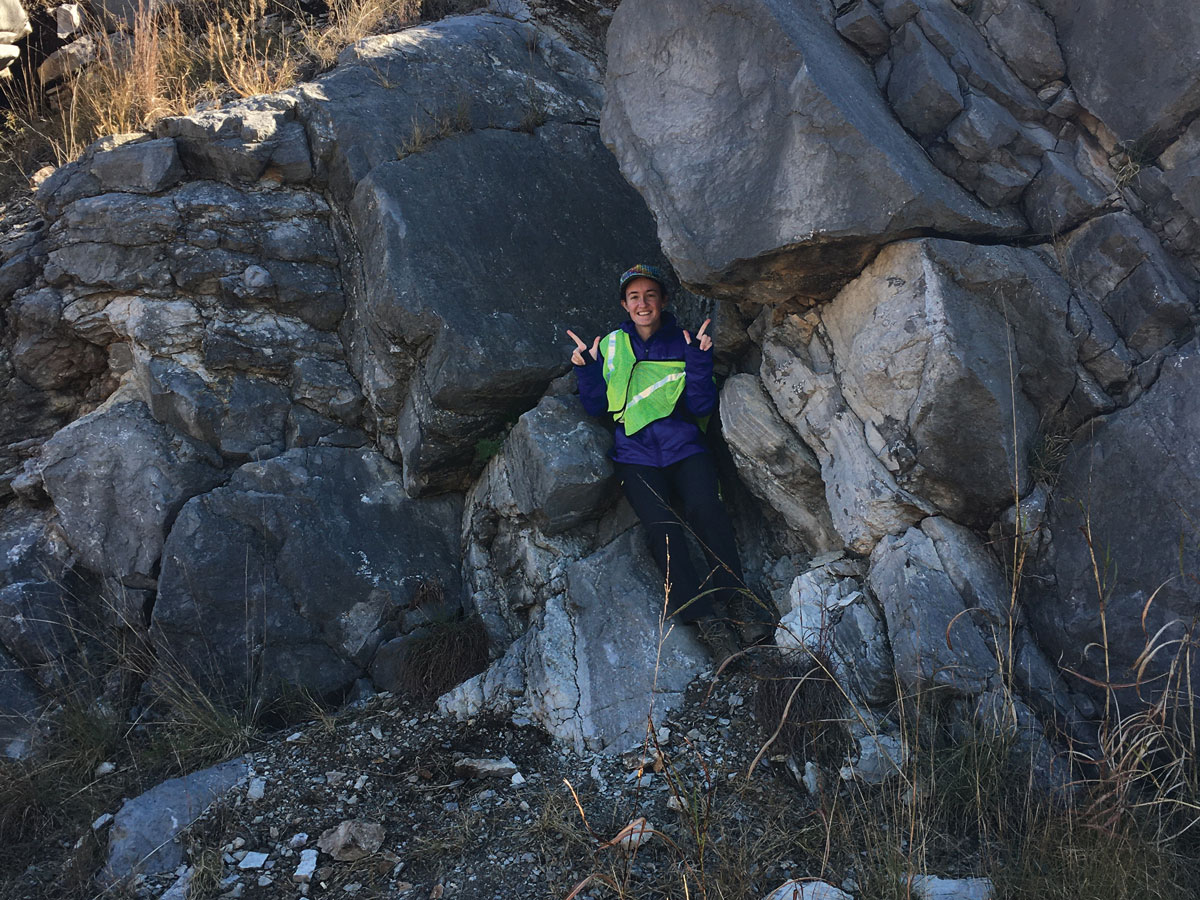Today Lauren Haygood is a first-year Ph.D. student at the Oklahoma State University, where she’s using deep-sea sediment cores to reconstruct Earth’s past climate.
But growing up, Haygood wasn’t interested in becoming a scientist. She loved sports and intended to pursue a career in sports medicine. When her family moved from California to Oklahoma the summer before her junior year of high school, two converging events changed her plans.
First, Haygood took a sports medicine class at her new high school. “I absolutely hated the class,” she said. Second, she and her mom planted a garden in their new backyard. Haygood was fascinated by how the soil’s nutrient composition was reflected in characteristics of the plants. The experience motivated her to earn bachelor’s and master’s degrees in geosciences from the University of Tulsa.
Haygood plans to become a university professor, so during college she joined AGU’s Voices for Science, which she hoped would improve her teaching skills. In the program, participants learn to communicate research to policymakers, journalists, and the public. It left her feeling inspired to get involved in science policy and to help bridge the gaps between scientists, politicians, and the public.
“I want to make the pathway easier for people coming up behind me.”
One of the ways Haygood drew on this inspiration was by starting What’s in Your Water?, a project in which community scientists analyze local water for contaminants. In addition to filling a gap in Oklahoma’s water quality data, “it was also educational,” Haygood said. People were “learning about how to properly talk about a water system’s health in regard to the toxins.”
Sometimes painful stereotypes have cropped up during Haygood’s policy work. Once, she said, a member of a politician’s staff told her that there was “no point in pursuing a STEM degree because women in Oklahoma just become housewives.” She hopes that normalizing scientific careers will alleviate burdens for future generations of scientists, especially minoritized groups. “I want to make the pathway easier for people coming up behind me,” she said.
Keep up with Lauren Haygood on Twitter and YouTube.
This profile is part of a special series in our August 2022 issue on science careers.
—Saima May Sidik (@saimamaysidik), Science Writer
25 July 2022: This article has been updated to correct Lauren Haygood’s current university.


